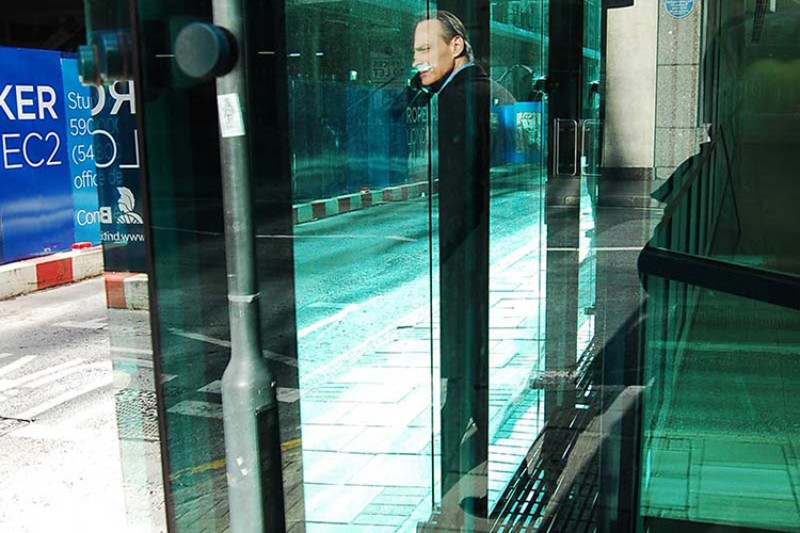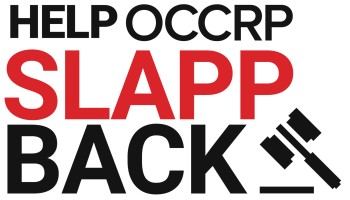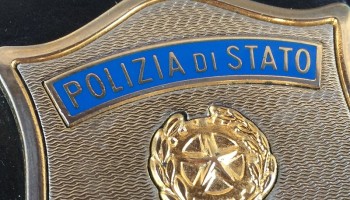Righi had already been convicted of trafficking drugs and handling stolen goods in 2004. Now, in the summer of 2008, the Italian police were on his trail again. The whole Righi family had been working for the Camorra bosses in Naples since the early 1980s. But Antonio was bringing the money laundering game to a new, global level, and local anti-mafia prosecutors wanted to take him down
On July 21, investigators who had been tapping Righi’s phone intercepted another key conversation -- less sensational, but, in a way, even more emblematic of the modern mafia. Speaking with an associate, Righi said he had found a tempting investment opportunity, and wanted confirmation that he could use funds parked in a British firm he had acquired.
“Is this company, Carrefur, alright?” Righi asked. “Because I have an ongoing operation for which it could come in handy.”
“Of course,” his henchman replied, “It is good because you have a lot of capital in it.”
The day after, in another conversation overheard by police, the nature of the deal became clearer: Righi spoke to a broker about investing 226,500 euros ($US 360,000) of dirty money in a Swiss real-estate fund.
These conversations were later transcribed in an indictment issued by anti-mafia prosecutors in Naples and obtained by Investigative Reporting Project Italy (IRPI), a partner of the Organized Crime and Corruption Reporting Project (OCCRP). On January 22, 2014, Righi, along with several family members and associates, was charged with conspiracy to launder money and mafia-type association -- a serious crime in Italy. He is currently in custody in Naples, where the trial is still ongoing.
According to investigators, the Carrefur deal was just one of many Righi carried out for both the Continis and the Mazzarellas. For years, these two powerful Camorra families have competed over drug sales and territory.
The Camorra is one of the oldest and largest criminal organizations in Italy, operating in the Naples area as a confederation of competing clans. It’s well known for sporadic outbreaks of feuding which have left many dead.
But as bodies fell in the streets of southern Italy, Righi was looking 1,000 miles to the north. Carrefur, the British company that figured in his scheme, was registered at a luxurious terraced house not far from Oxford Street in London’s West End. Not that it really had a physical presence there -- it was no more than a letterbox. But the prestigious address provided credibility and cover.
Today’s organized crime groups appreciate the United Kingdom (UK) and especially the power hub of London. Here they can find all the services they need to build complex corporate structures and park their dirty money. The case prosecutors built against Righi makes clear that he understood exactly how modern global finance works -- and how he could make it work to his benefit. It demonstrates the extent to which organized crime groups have been able to take advantage of globalization, and the key role our financial institutions are playing in making their crimes possible.
In some cases, the mafia have proven more adept than the police at operating across international borders. One of the dozens of hearings in Righi’s trial demonstrated how the failure of Italian and British authorities to work together prevented them from identifying his Camorra-linked companies and seizing hundreds of million of pounds in crime-tainted money.
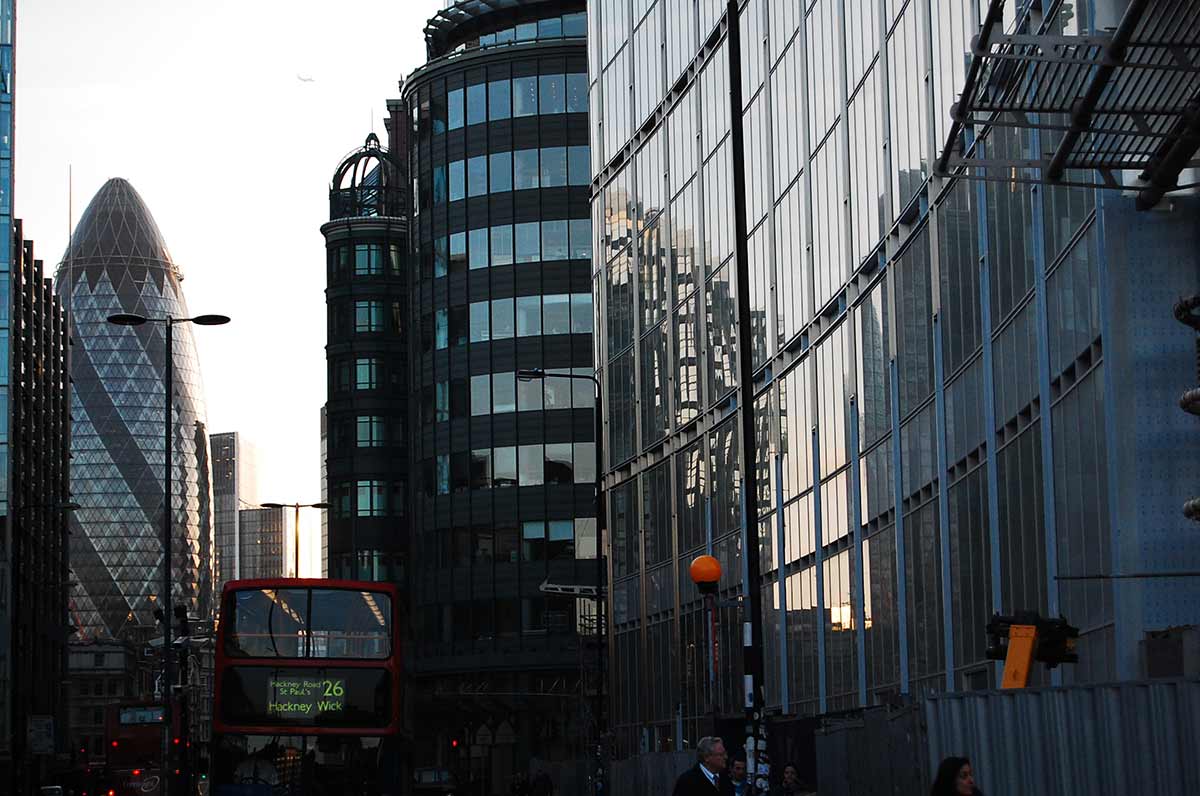 London (Photo: Cecilia Anesi)
London (Photo: Cecilia Anesi)
When Righi’s interest in the UK emerged in wiretapped conversations and the Italians sought help from their British counterparts, but their joint efforts didn’t go far. “The equivalent police body, contacted through Sirene [the judicial cooperation platform of the EU] never responded,” said an investigator called to testify during the trial.
“Oh, so the British never got back, huh?” Prosecutor Ida Teresi asked.
A senior police chief who declined to be named disputed this assertion, saying that the British police had replied, but were unable to help the Italian investigators find any companies linked to Righi. IRPI reporters, searching by simple variations of the names, since criminals often purposefully misspell them, were able to find the companies in short order.
That’s not to say the Italian police didn’t get anything. Righi and his two brothers once headed a commercial powerhouse consisting of dozens of companies. Last year, the authorities cracked down on this empire and confiscated property worth 250 million euros, which included 28 pizzerias, bars, and restaurants in Italy.
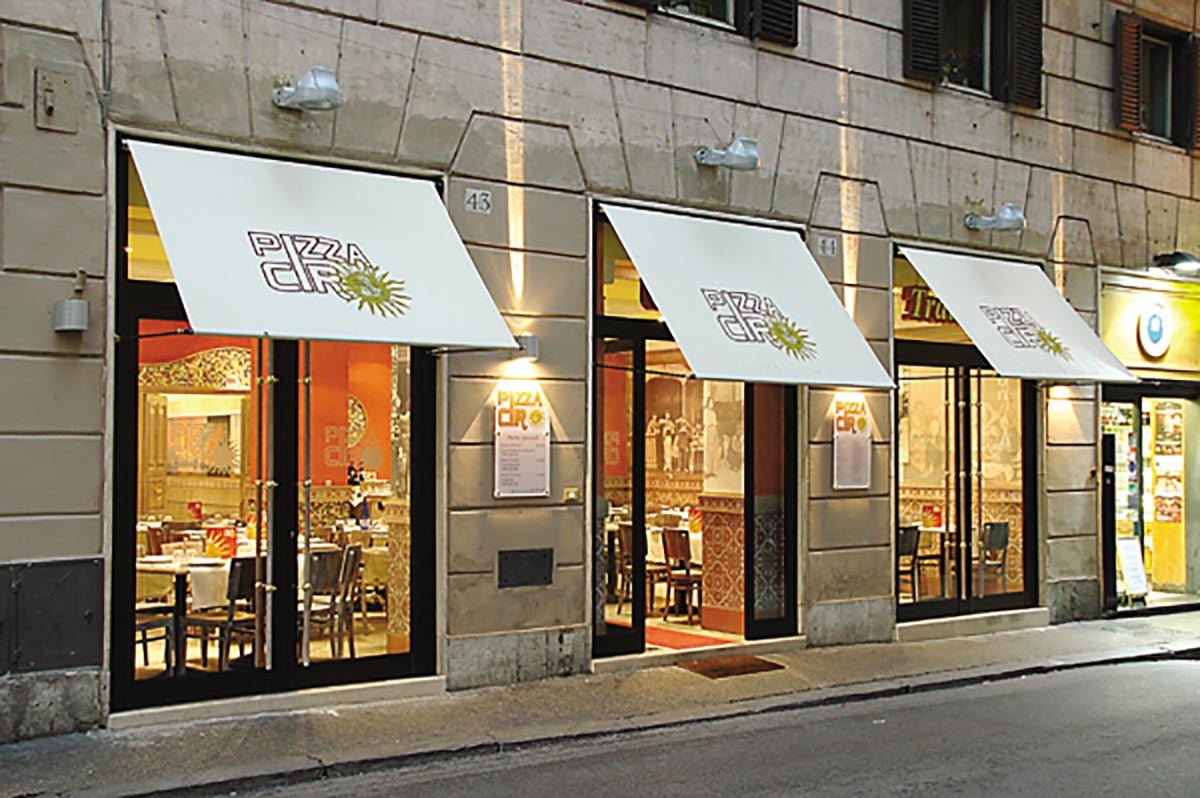 A Pizza Ciro restaurant in Rome. The chain was among the assets confiscated from the Righi family by the police in May 2016. (Photo: Arma dei Carabinieri)
A Pizza Ciro restaurant in Rome. The chain was among the assets confiscated from the Righi family by the police in May 2016. (Photo: Arma dei Carabinieri)
But much of the Righis’ investment portfolio -- which police say was run on behalf of the Camorra clans -- was global. Its trademark, “Pizza Ciro,” was registered in Spain, the UK, and even China, where the Righis hoped to set up a frozen pizza factory. They discussed buying real estate worth more than £8 million in Eastern Europe.
And of course, the UK played a major role in Righi’s business plans. IRPI reporters identified five UK companies they used to move money and invest all over the world. All but one is now dissolved. And since the police investigations were never extended to the UK, the full story of the man police say was one of the Camorra’s most prolific money launderers remains to be investigated.
The Wild West atmosphere that prevails in the UK’s corporate world today stems from deregulation that began in the late 1970s under the late Margaret Thatcher. Successive British governments have continued to loosen the reins on creating private businesses to the point that it now takes just 10 minutes to submit an application to incorporate a British limited company.
All applicants need do is enter some data into the “Companies House” online portal, pay £12, and wait some 24 hours. No checking or verifying of information is required. No copies of any documents.
And while the British economic system has taken off under extreme deregulation, it has also been left wide open to criminals and fraudsters.
Righi quickly mastered the rules of the game.
Rome’s Carabinieri, a military force charged with police duties, began investigating the Righis’ activities in 2008. The probe eventually led to 84 arrests six years later, illustrating the complexity of the family’s business maneuvers. They employed dozens of “nominees” -- people who appear to own or control businesses, but who are really proxies disguising the real owners.
According to police the nominees would transfer companies’ shares among each other and conduct fictitious sales every year. Company directors were often changed to make it difficult for investigators to piece together the full picture of their immense wealth.
These complex transactions can be seen in the UK’s company register, where Righi’s name appears and disappears over the years, criss-crossing with the names of his nominees and collaborators. Righi appears to have rather enjoyed the game. One company listed as the “secretary” for one of his British enterprises was called the “Banda Bassotti Company” -- Italian for Disney’s “Beagle Boys,” the group of gangsters who are always trying to outwit Scrooge McDuck.
Many of these companies stayed dormant for years, but held share capital of tens of millions of pounds. Typically, they registered no activity before suddenly springing into action, orchestrating massive operations like acquiring a football club in Eastern Europe or moving financial investments in Switzerland.
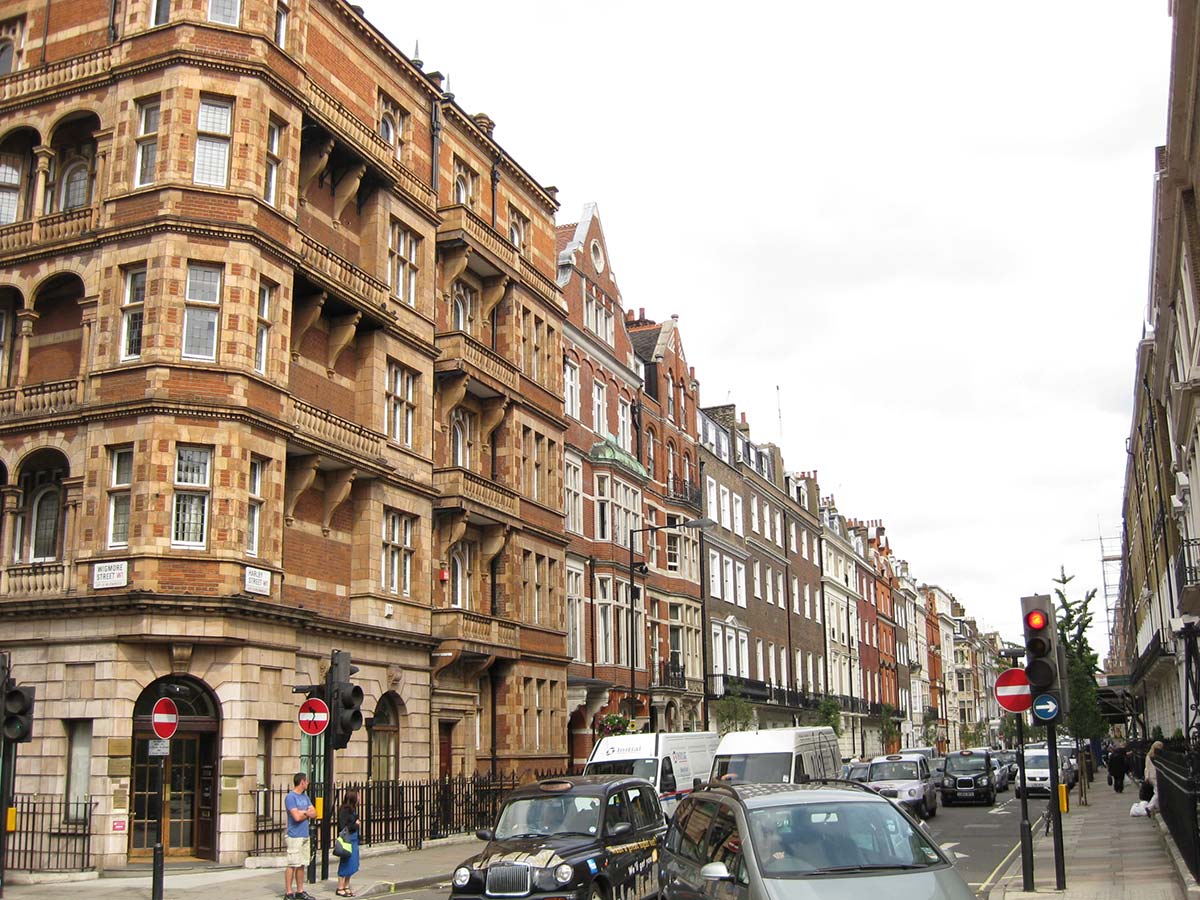 Harley Street, in the prestigious Marylebone neighborhood of London, where hundreds of companies are registered - including the Camorra's. (Photo: Chemical Engineer, CC BY-SA 3.0) To set up his schemes, Righi chose Formation House, an experienced agent that specializes in incorporating companies. It was recently the subject of an investigation by The Guardian which showed how it has helped fraudsters register hundreds companies at 29 Harley Street, a sought-after Marylebone address. All were shell corporations used to process large cash flows or to arrange complex international frauds.
Harley Street, in the prestigious Marylebone neighborhood of London, where hundreds of companies are registered - including the Camorra's. (Photo: Chemical Engineer, CC BY-SA 3.0) To set up his schemes, Righi chose Formation House, an experienced agent that specializes in incorporating companies. It was recently the subject of an investigation by The Guardian which showed how it has helped fraudsters register hundreds companies at 29 Harley Street, a sought-after Marylebone address. All were shell corporations used to process large cash flows or to arrange complex international frauds.
Carrefur Ltd., the first British company in which Righi’s name appeared, was registered at this Harley Street address. It was incorporated in 2007 by Michele Palma, who also served as Righi’s nominee for a series of companies in Italy. Righi officially entered the company a few months later, becoming director and shareholder. But the go-to man was one of Righi’s most trusted partners in his London ventures: Alessandro Della Chiesa, 73, of Cesenatico, a town on Italy’s Adriatic coast.
Investigative records from Naples name Della Chiesa as a central figure in the creation of Società Cooperativa Pescevivo, a company built to sell Adriatic fish. Righi made a personal investment in Pescevivo intended to increase the influence of the Mazzarella clan in the Neapolitan fish market. Wiretaps indicated that Della Chiesa was at Righi’s disposal, working under his strict command on the Adriatic coast.
In the UK, their relationship strengthened. Della Chiesa became director and shareholder of Carrefur in May 2009, but police wiretaps leave little doubt he had managed the empty shell in London even before he joined it. Della Chiesa is the man whose conversation with Righi the police wiretapped in July 2008.
IRPI reporters have also established that a year earlier, before it came under the investigators’ spotlight and when Righi was its director, Carrefur was Righi’s calling card in the world of football. In 2007 it acquired Football Club Sopron, a club then playing in the Hungarian Premier League. As the club’s new president, Righi made big promises: he would clear the debts of the previous management, buy five new high-level players, and ensure exciting football performances. But a few months later, the Hungarian federation kicked the team out of the league for failing to pay taxes and its employees.
Shortly afterwards, the historic club was dissolved.
That year, in 2008, Della Chiesa and other Righi associates carried out a similar operation using another British company, Finance Mortgages Ltd. (in which Righi later appeared as a shareholder and Della Chiesa as a director). They moved to buy the failing Modena Calcio football club with a € 500,000 collateral, then backed off.
The reasons for these two deals have never been unearthed, though another football scheme hints at their true purpose. The following year, in 2009, Della Chiesa was sentenced to six years in jail for bankruptcy fraud and embezzlement committed while he was manager of the Ravenna football club.
Righi’s name appears in other UK companies of unknown purpose.
Magnolia Fundaction [sic] looks like it comes straight out of of a comic strip. The company boasted a £90 million ($180 million) share capital, but its continuous changes in directorship makes it look much more like a shell being prepared for any number of different operations. Names spun in and out as if caught in a revolving door: Righi’s name was registered on March 1, 2008 -- and he resigned the same day.
That same year, the main heads of the company were two Italian businessmen: Gennaro Ruggiero and Francesco Isidoro Candura, whom Milan prosecutors investigated in 2009 for allegedly helping to organize a military coup in Angola.
With no need to back up the names of the listed directors with any documents, a series of made-up characters appeared to lead the company a few years later.
For about 48 hours starting on Jan. 27, 2010, an “Ottavio” was registered as the company’s director. His surname was “The Hen’s Thief,” while his occupation was listed as ‘’fraudster” in the company filings. Banda Bassotti Company, named after the Disney Beagle Boys, another secretary of Magnolia, was registered in the fictitious address Via Dei 40 Ladroni, Ali Babbà, Italy--a not-so-subtle reference to the folktale “Ali Baba and the Forty Thieves” from One Thousand and One Nights.
Today, Righi’s British companies have mostly been dissolved, but one entity linked to him is still alive. Business Bank Italy is a company registered in a semi-detached house in the far East London suburbs but harboring global ambitions. It was born in 2008 with a declared capital of £10 million ($20 million) and guided at the time by Della Chiesa.
Righi appeared in records as an administrator and shareholder for a few months in 2011. His close collaborators, who had managed the company earlier, stayed on. Business Bank Italy was next heard from in 2015, when it launched a website complete with a shiny logo.
“Financial Services for the Global Investor” promises the bank, which claims to be a group of venture capitalists in search of revolutionary ideas. Its ads proclaim, “We provide start-up or growth equity or loan capital” for selected projects.
This seems a lofty goal for a dormant company that has not registered any activity since its inception. The site identifies no consultants or investors.
Though some of the services it advertised are regulated by the Financial Conduct Authority, Business Bank Italy has no registration with the regulator, the Evening Standard reported in a story drawn from IRPI’s investigation.
Despite repeated attempts, IRPI reporters were unable to reach the company.
Neither Righi nor Della Chiesa, reached by reporters via their lawyers, replied to requests for comment.
Righi is still in jail, awaiting the end of his trial, which is expected this fall. Whatever the outcome, this particular international business empire has been taken down. But there are many more British companies still registered at 29 Harley Street.
This investigation is part of a larger project by Il Fatto Quotidiano about mafias in Europe.
